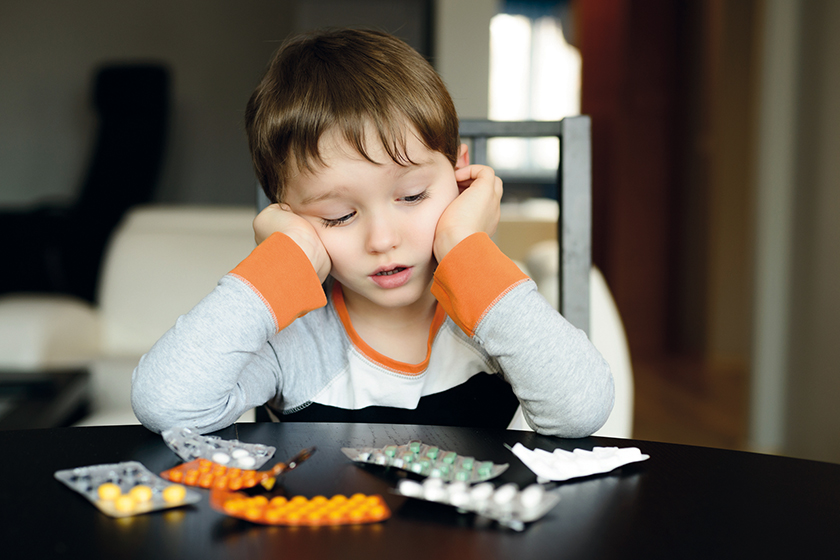
- HOME
- EDUCATION
What We Can Learn From The US About Children’s Mental Health
By | 7 years ago
Psychologist Dr Josephine Storek considers the anxiety epidemic and looks to the US for some answers

Headlines highlight a mental health crisis; surging anxiety, depression, self-harming behaviours, and an epidemic of learning difficulties among school children. Yet many still believe that these impairments and diagnoses like attention deficit hyperactivity disorder (ADHD) are an invention of rich, ‘Americanised’, pushy parents using medication to cover up poor parenting.
The facts however are incontrovertible. Dinner parties abound with worried whispers: ‘My son is a bit ADHD’, ‘my daughter changed overnight’, ‘they may be at good school but they have serious body image issues’. The statistics support this trend.
Worldwide, ten to 20 per cent of children experience a mental health issue.
Cases of university students dropping out due to mental health have almost trebled, according to data from the Higher Education Statistics Agency. Rates of anxiety and depression have risen by 70 per cent with children as young as four battling depression and anxiety. It is unclear what is fuelling the rise, but social media, bullying, changing gender roles, unreasonably high educational targets and over-protective parenting styles are blamed.
Vast progress has been made in the diagnosis, treatment and pastoral care of learning difficulties, such as dyslexia, dyspraxia and dyscalculia in the UK. Schools are now trained to pick up and address parental concerns, but the situation is very different for children with behavioural impairments like ADHD.
In spite of a huge societal shift towards improving mental health issues, parents often still feel that medication is unnecessary, and perhaps even harmful, and that ‘difficult’ children stem from inadequate parenting or mismatched schooling.
Lessons from America
As a doctor who divides time between University College London and Boston University, I know how far we are behind America in the diagnosis, treatment and educational accommodation of ADHD children. The term itself, Attention Deficit Hyperactivity Disorder, is misleading. Individuals with ADHD are not unable to pay attention. In fact, they pay too much attention to too many things at once. They struggle with uncontrollable impulsivity, inattention or hyper focus, inability to organise and execute daily tasks, poor memory and processing issues, sub-academic performance unrelated to intelligence, emotional disregulation, mood swings and oversensitivity, immaturity, misread social cues, difficulty making and keeping friends, poor relationships and sleep difficulties. Symptoms vary from child to child, even within families. Some describe it as living in a constant fog.
ADHD is a neurological condition with disregulated levels of dopamine and norepinephrine in the brain, responsible for regulating movement, controlling the pleasure centre, improving cognitive functions such as knowledge, attention, memory, decision-making, problem solving and happiness. It runs in families with higher heritability rates than schizophrenia. Boys are four times more likely to get diagnosed than girls because girls tend to be less disruptive. The average diagnosis age is seven years with symptoms unexplained by other psychiatric conditions. Parents are often diagnosed alongside their children, with the largest single group being mothers of ADHD children. Worldwide prevalence is estimated at five per cent (USA children at 11 per cent; British children at two to five per cent).
When untreated, the condition is co-morbid with anxiety, depression, eating disorders and self-harming. Over half of ADHD children have other learning difficulties. Correct treatment can improve the symptoms, but if neglected ADHD is linked with dropping out of school, addiction, and unemployment.
Popular articles discrediting scientific evidence do tremendous damage.
Most parents are naturally wary of medicating their children, but cases of misdiagnoses are rare and shouldn’t be over-exaggerated. ADHD children benefit from medication the same way diabetics benefit from insulin. A new generation of drugs research strengthened cortical synapses and better chemical pathways. Other treatments exist yielding similar results, such as therapy (CBT), neurofeedback, exercise, diet, sleep hygiene and screen time programmes. Although they work better in conjunction with medication.
What can we learn from America in the treatment of ADHD? Firstly, the importance of shortening the time from diagnosis to a treatment plan (including a tailored-educational programme). Secondly, America deploys multidisciplinary expert teams. Psychologists, neuropsychologists, psychiatrists, and paediatricians team with parents, teachers and SENCOs to determine treatment and they begin working with the child within days. Thirdly, they are better informed and more accommodating of neurodiversity.
Americans overall are more pragmatic, flexible and open to implementation of the latest scientific findings and integrating latest technological tools, ensuring each child has the fairest possible start. These are the lessons we can learn.
READ MORE: How independent schools promote mental wellbeing / Why pastoral care should be a priority



